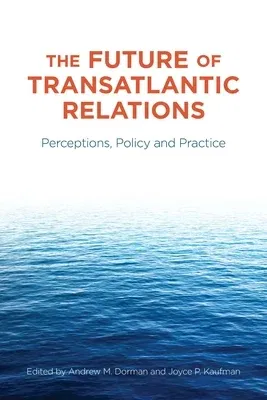The Future of Transatlantic Relations: Perceptions, Policy and PracticePaperback, 29 November 2010

Qty
1
Turbo
Ships in 2 - 3 days
In Stock
Free Delivery
Cash on Delivery
15 Days
Free Returns
Secure Checkout

Print Length
336 pages
Language
English
Publisher
Stanford Security Studies
Date Published
29 Nov 2010
ISBN-10
0804771979
ISBN-13
9780804771979
Description
Product Details
Book Format:
Paperback
Country of Origin:
US
Date Published:
29 November 2010
Dimensions:
22.61 x
15.24 x
2.03 cm
ISBN-10:
0804771979
ISBN-13:
9780804771979
Language:
English
Location:
Stanford, CA
Pages:
336
Publisher:
Weight:
453.59 gm